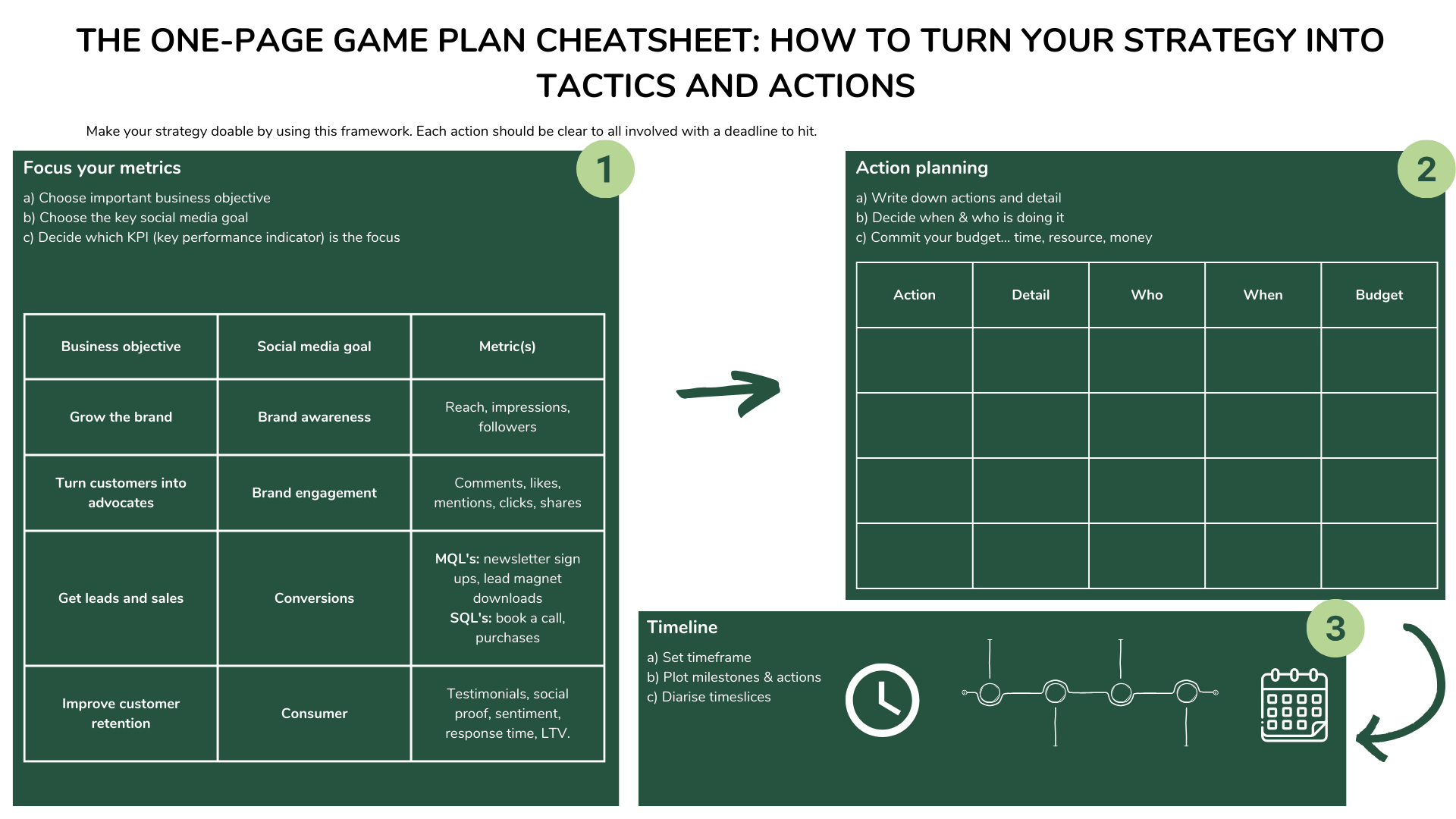Unlock LinkedIn prospecting: Coaching, training, and more!
Transform your LinkedIn presence and get more prospects.
Welcome to a transformative journey for leaders and teams. Over three months, we'll empower you with a proven LinkedIn system, personalised guidance, and hands-on support for successful prospecting.
Welcome to a transformative journey
for leaders and teams.
Over three months, we'll empower you with a proven LinkedIn system, personalised guidance, and hands-on support for successful prospecting.
Empower your online prospecting: We equip leaders and teams with a tailored LinkedIn system for successful prospecting.
Proven system:
You'll experience a structured approach that's proven to deliver results.
Tailored goals: Your journey is customised to your unique objectives.
Guided mastery: We'll guide you through optimising profiles and mastering engagement strategies.
Hands on support: We'll provide ongoing support and accountability for progress and confidence.
Prospecting excellence:
By the program's end, you'll possess skills, tools, and confidence to excel in LinkedIn prospecting. Elevate leadership influence and engagement today.
"I would highly recommend Rachel! Not only is she lovely and extremely down to earth, she is very knowledgeable and passionate about the use and importance of social media"

Does this sound familiar?
Leaders and teams often find LinkedIn prospecting complex and unrewarding.
We offer a systematic solution to unlock LinkedIn's potential. Connect with prospects confidently, transform your LinkedIn presence.
Which industries benefit from LinkedIn training?
-
Lawyers and Solicitors
LinkedIn is an essential platform for lawyers for various reasons. It provides an unparalleled opportunity for professional networking. Lawyers can connect with colleagues, industry influencers, and potential clients, expanding their network and cultivating valuable relationships. These connections can lead to referrals, collaboration opportunities, and a broader professional support system.
LinkedIn serves as a platform for reputation building. Lawyers can showcase their expertise and highlight their professional achievements through their profiles, endorsements, and recommendations. By consistently sharing relevant content, participating in discussions, and engaging with others in the legal field, lawyers can establish themselves as thought leaders and enhance their professional reputation.
Moreover, LinkedIn offers a powerful avenue for business development. Lawyers can leverage the platform to promote their legal services, attract potential clients, and expand their reach. By maintaining an active presence and sharing valuable insights, lawyers can increase their visibility within their target audience and attract new business opportunities.
-
Accountants
LinkedIn provides a vast pool of knowledge-sharing resources and professional development opportunities specifically curated for accountants. Through active participation in industry groups, following influential thought leaders, and staying abreast of accounting news, accountants can gain valuable insights, remain updated on emerging trends, and enhance their professional skills.
Furthermore, LinkedIn serves as a preferred platform for recruitment in the accounting industry. Many employers and accounting firms actively seek out talent on LinkedIn, making it crucial for accountants to have a polished and comprehensive profile that highlights their skills, experience, and accomplishments.
Lastly, LinkedIn enables accountants to establish a compelling professional brand. By optimizing their profiles, engaging with relevant content, and actively participating in conversations within the accounting community, accountants can solidify their personal brand, gain recognition, and differentiate themselves in the competitive accounting landscape.
-
Banking and finance specialists
LinkedIn offers bankers a unique platform to connect and engage with other professionals in the banking and finance industry. By building a robust network of colleagues, industry influencers, and potential clients, bankers can cultivate valuable relationships and access new opportunities.
LinkedIn also allows bankers to position themselves as thought leaders in the industry. By sharing valuable insights, industry trends, and expertise through articles, posts, and comments, bankers can establish their credibility and enhance their reputation as trusted experts.
The platform also allows for bankers to showcase their professional achievements, credentials, and experience. By maintaining an updated profile, sharing success stories, and receiving recommendations, bankers can strengthen their reputation and increase their perceived value within the industry.
Unleash your potential:
Our program conquers each challenge.
Proven ShooCo System: Tap into a proven LinkedIn system.
Guidance tailored: Receive personalised guidance for leadership objectives.
Masterful journey: Traverse three training sessions, from profile optimisation to advanced engagement.
Support and accountability: We'll guide you closely, ensuring progress and confidence.
Prospecting mastery:
By program's end, you'll possess skills, tools, and confidence for LinkedIn prospecting.
Transform LinkedIn prospecting. Book your free consultation.
Frequently asked questions
Got some questions about training? We have answered our most commonly asked questions below.
-
What is social media training and why is it important?
Social media training is a program or course designed to teach individuals or businesses how to effectively use social media platforms to promote their brand, engage with their audience, and achieve their marketing goals.
Social media platforms like Facebook, Instagram, Twitter, LinkedIn, and others have become essential marketing tools for businesses of all sizes. However, navigating these platforms and leveraging their full potential can be challenging without the proper knowledge and skills. That's where social media training comes in.
Through social media training, individuals and businesses can learn how to create and manage effective social media campaigns, understand social media metrics and analytics, develop engaging content, build and grow their social media presence, and more.
Social media training is important because it can help individuals and businesses achieve their marketing goals more effectively and efficiently. By learning how to use social media platforms to their full potential, businesses can increase brand awareness, attract new customers, build customer loyalty, and ultimately drive sales.
Moreover, social media training can help individuals develop valuable skills that are in high demand in the job market. Many companies today are looking for social media experts who can help them navigate the rapidly changing social media landscape and leverage its potential to achieve their marketing goals.
In summary, social media training is important because it can help businesses and individuals stay competitive in the modern digital landscape, achieve their marketing goals, and develop valuable skills that are in high demand.
-
What are the benefits of social media training for businesses?
Social media training offers several benefits for businesses. Here are some of the key advantages:
Improved brand awareness: Social media training can help businesses increase their brand awareness by teaching them how to create engaging social media content that resonates with their target audience. This can help businesses reach new customers and build brand recognition.
Better engagement with customers: Social media training can teach businesses how to engage with their customers on social media platforms, respond to comments and messages, and build strong relationships with their audience. This can help businesses build customer loyalty and increase customer satisfaction.
Increased website traffic: Social media training can help businesses drive more traffic to their website by teaching them how to create effective social media campaigns that promote their products or services.
More effective social media advertising: Social media training can teach businesses how to create and manage effective social media advertising campaigns, which can help them reach new customers and achieve their marketing goals more efficiently.
Improved social media metrics: Social media training can teach businesses how to track and analyze their social media metrics, such as engagement rates, click-through rates, and conversion rates. This can help businesses understand the effectiveness of their social media campaigns and make data-driven decisions to improve their results.
Competitive advantage: Social media training can give businesses a competitive advantage by helping them stay up-to-date with the latest social media trends and best practices. This can help businesses stand out from their competitors and attract new customers.
Overall, social media training can help businesses improve their social media presence, engage with their customers more effectively, drive more traffic to their website, and achieve their marketing goals more efficiently.
-
How can social media training help improve my social media skills?
Social media training can help improve your social media skills in several ways:
Understanding social media platforms: Social media training can teach you the ins and outs of different social media platforms, including their features, algorithms, and best practices. This knowledge can help you use these platforms more effectively and efficiently.
Creating effective content: Social media training can teach you how to create engaging and effective social media content, including text, images, videos, and more. This can help you attract and retain followers and drive more engagement on your social media profiles.
Developing a social media strategy: Social media training can teach you how to develop a social media strategy that aligns with your business goals and target audience. This can help you achieve your marketing goals more efficiently and effectively.
Implementing social media advertising: Social media training can teach you how to create and manage social media advertising campaigns that reach your target audience and achieve your marketing goals.
Measuring social media performance: Social media training can teach you how to track and analyze social media metrics, including engagement rates, click-through rates, and conversion rates. This can help you understand the effectiveness of your social media campaigns and make data-driven decisions to improve your results.
Staying up-to-date with social media trends: Social media training can keep you up-to-date with the latest social media trends, tools, and best practices. This can help you stay ahead of your competitors and leverage new opportunities as they emerge.
Overall, social media training can help you improve your social media skills and achieve your marketing goals more efficiently and effectively.
-
How much does social media training cost? (UK)
The cost of social media training can vary widely depending on several factors, including the level of expertise covered, the duration of the training, and the location of the training provider.
Here are some general guidelines for the cost of social media training in the UK:
Basic social media training: Basic social media training that covers the fundamentals of social media marketing is widely available and can cost anywhere from £50 to £500 per person for a day-long training course.
Intermediate social media training: Intermediate social media training that covers more advanced topics such as social media advertising, analytics, and content creation can cost from £500 to £1,500 per person for a multi-day training course.
Advanced social media training: Advanced social media training that covers specific platforms such as LinkedIn or Meta (formerly Facebook) can cost from £1,500 to £3,000 per person for an in-depth training program.
It's important to note that the cost of social media training can vary depending on the specific provider and the location. Some providers may offer online courses that are less expensive than in-person training, while others may charge more for customized or one-on-one training programs.
When considering the cost of social media training, it's important to also consider the potential return on investment (ROI) of the training. Investing in social media training can help individuals and businesses improve their social media marketing efforts, reach a wider audience, and generate more leads and sales.
-
Can LinkedIn training help me improve my social media marketing strategy?
Yes, social media training can help you improve your social media marketing strategy in a number of ways. Here are some of the ways that social media training can be beneficial for improving your social media marketing strategy:
Learning best practices: Social media training can provide you with best practices for social media marketing, such as how to create engaging content, how to engage with your audience, and how to measure your social media performance. These best practices can help you develop a more effective social media strategy.
Understanding social media platforms: Social media training can help you understand how to use different social media platforms to achieve your marketing goals. For example, you may learn how to use Instagram to build your brand, or how to use LinkedIn to generate leads.
Improving your social media advertising skills: Social media training can help you improve your social media advertising skills, including how to create effective ads, how to target the right audience, and how to measure the ROI of your campaigns. This can help you maximize the impact of your advertising budget.
Staying up-to-date on social media trends: Social media training can help you stay up-to-date on the latest trends in social media marketing, such as new features and updates to social media platforms. This can help you adapt your strategy to stay ahead of the competition.
Networking and collaboration: Social media training can provide you with the opportunity to network with other professionals in your industry and collaborate on social media projects. This can help you gain new ideas and perspectives for your social media strategy.
Overall, social media training can be a valuable investment for improving your social media marketing strategy and achieving your business goals. By learning new skills and staying up-to-date on social media trends, you can stay ahead of the competition and reach more customers through social media.
-
How long does LinkedIn training typically take?
The length of LinkedIn training can vary depending on the specific training program and the individual's level of expertise. Some training programs may be as short as a few hours, while others may last several weeks or months.
For example, a basic social media training program that covers the fundamentals of social media marketing may take a few hours or a full day. This type of training may cover topics such as creating effective social media profiles, developing a social media content strategy, and basic social media analytics.
More advanced social media training programs, such as those that cover specific platforms like LinkedIn or Meta (formerly Facebook), may take several days or weeks to complete. These programs may cover topics such as creating and optimizing ads, advanced analytics, and leveraging social media for lead generation.
Ultimately, the length of social media training will depend on the specific goals and needs of the individual or business seeking the training, as well as the depth and breadth of the training program itself. It's important to research different training options and choose a program that meets your specific needs and fits within your schedule.
Check out the SHOO blog
Insights from a team of creatives, technical wizards, and BIG thinkers.
A blog for Founders, Entrepreneurs, Leaders and Marketing Professionals.

Sign up to our newsletter for the latest insider insights, top advice and more.
We will get back to you as soon as possible
Please try again later

Shoo Social Media
137 Bolling Road
Ben Rhydding
Ilkley Leeds
LS29 8PN
01943 430245
Info@shoosocialmedia.co.uk


